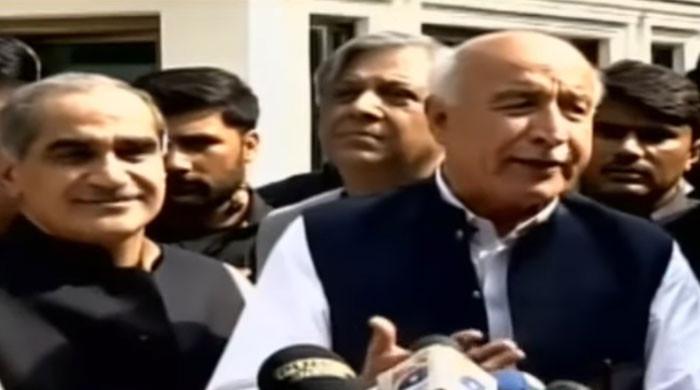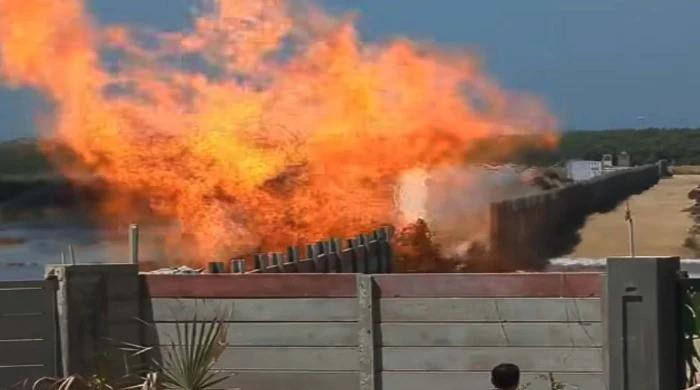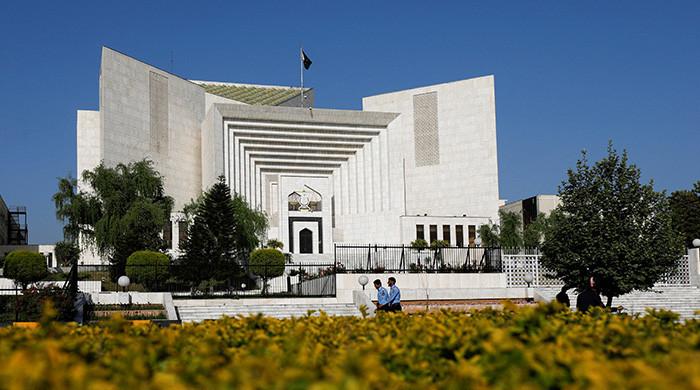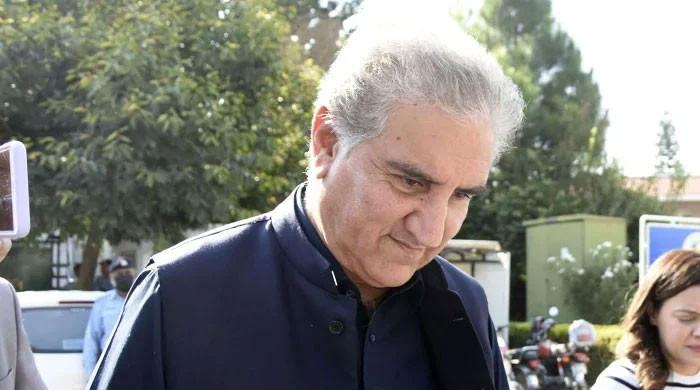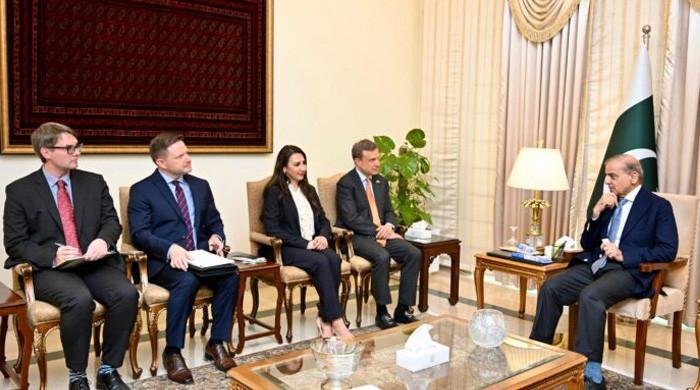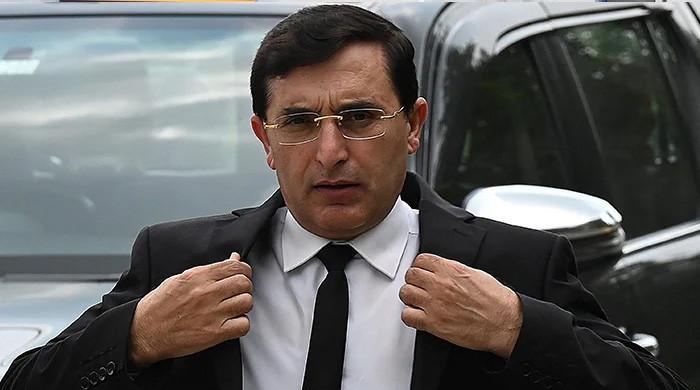Sanaullah hints at 'progress' in potential talks with PTI amid looming 'civil disobedience' deadline
"It is govt's job to initiate talks...PTI will not make the first move," says party spokesperson Waqas Akram
December 20, 2024
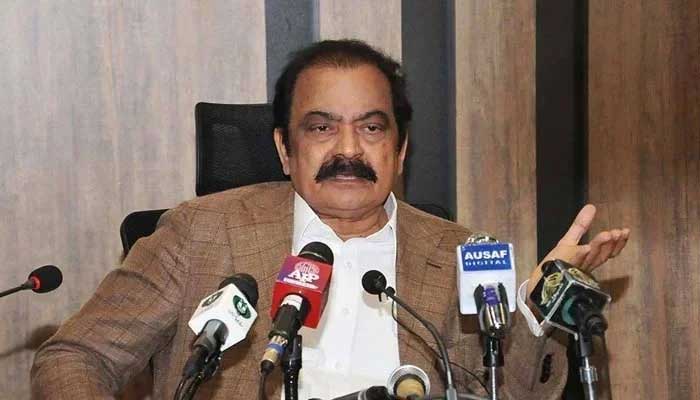
- NA speaker contacted PM, progress likely in day or two: Sana.
- "Al-Qadir Trust case's decision won't derail negotiation process."
- Engagements shouldn't be called negotiations: PTI spokesperson.
A day after incarcerated PTI founder Imran Khan issued a new ultimatum of launching a civil disobedience movement if his "legitimate demands" are not met, Prime Minister's aide on Political Affairs, Rana Sanaullah hinted at "progress" in holding talks with the former ruling party, reiterating that political issues should be resolved through dialogue.
"[National Assembly] speaker has contacted the prime minister [...] I think there will be progress in this regard in a day or two," he said while responding to a question regarding the formation of the government committee for talks with PTI on Geo News programme 'Aaj Shahzeb Khanzada Kay Sath'.
The jailed PTI founder — in a post on X — had warned the government of launching a civil disobedience movement if his "legitimate demands" including the release of under-trial political prisoners and a judicial probe into May 9 events and Nov 26 crackdown on PTI protesters are not met by Sunday (Dec 22).
"These are both legitimate demands, and if the government does not implement them by Sunday, the first phase of the civil disobedience movement, 'boycott of remittances', will be launched," the ousted prime minister added.
The PM's aide statement comes against the backdrop of prevailing ambiguity surrounding the PTI-government dialogue which has been the talk of the town ever since Imran formed a negotiation committee.
Earlier this week, the reports of the former ruling party and the government's agreement to use the parliamentary forum for negotiation emerged following a meeting between PTI stalwart Asad Qaiser with NA Speaker Ayaz Sadiq.
However, Qaiser dismissed these reports saying that he visited Sadiq's residence for condolences. "No discussion regarding negotiations took place with the [NA] speaker," he added. Similarly, the government has also said that no talks with the PTI have been initiated.
Speaking during today's show, Sanaullah said that every issue can be discussed, however, no guarantee can be given about which demand will be accepted and which will not. "If they force us to accept these demands, then what is the need for talks?"
In response to a question, he said the PTI negotiation committee was in contact with NA Speaker Ayaz Sadiq. Furthermore, he said that the current political crisis actually began in 2018, adding that his party had suffered all of these which the PTI was complaining about.
When asked whether the Al-Qadir Trust Case's verdict, scheduled to be announced on Dec 23 (Monday), will derail the talks, the PM's aide said the case was underway in a trial court, adding that he does not think the decision would impact the negotiation process.
'PTI won't make a move'
Meanwhile, PTI spokesperson Sheikh Waqas Akram said that his party has constituted a committee for negotiations. "An impression is being given that our party has surrendered," he said, adding that that is not the case.
"It is their [the government's] job to begin the negotiations, we will not make the first move," Akram clarified. In response to a question on Geo News programme 'Naya Pakistan', he said that engagements between the government and PTI do take place but they should not be called negotiations.
A day earlier, Imran said that the PTI's offer for negotiations was "ridiculed", and it was made to look as if the party had surrendered. "The offer for talks and delaying the civil disobedience movement was made in the broader national interest."
"If the government shows no interest, we will not force negotiations upon them. Our offer should never be seen as a sign of our weakness. If the government still wants to prevent the civil disobedience movement, they must contact us regarding our two demands or convince us that they are unconstitutional and cannot be addressed," he added.




